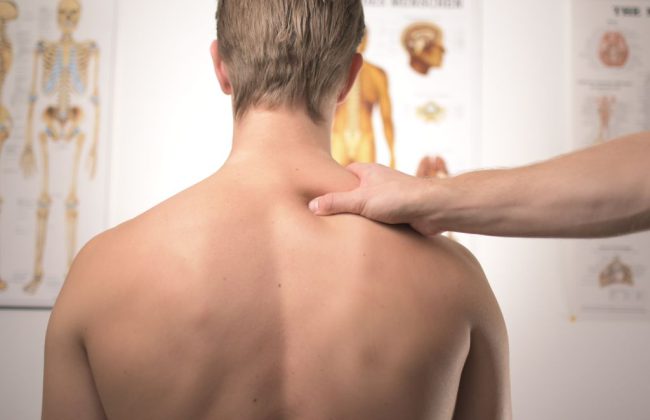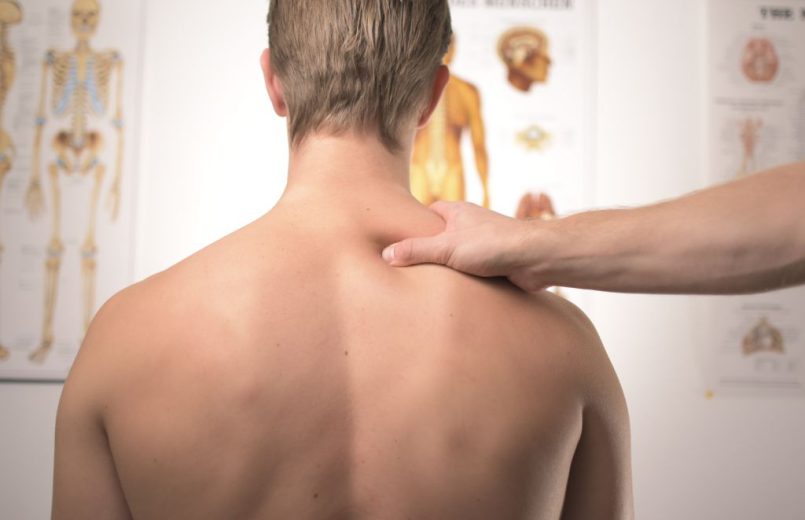Whiplash, also called cervical pain or sprains, are muscle injuries produced in the neck area that can affect the spine. They are fairly common injuries and, although they can be chronic, they usually occur after a strong impact behind the neck, so it is very important to seek professional help to recover and not suffer possible sequelae that affect our mobility for life, what that makes physical therapy essential after whiplash.
WHAT IS A CERVICALGIA OR WHIPLASH AND WHAT ARE ITS SYMPTOMS?
We talk about whiplash or neck pain when the neck muscles suffer hyperextension or hyperflexion exceeding their limits of movement. As we have said, they usually occur after a sudden impact on the back of the neck, although they can be degenerative or chronic, causing progressive wear on the vertebrae, or of infectious origin after a disease such as meningitis or spondylitis.
It mainly affects muscles and tendons and its symptoms usually include dizziness, neck and back pain, headaches, cramps and ringing in the ears, among others.
The most common is neck and back pain
Since the injury is mainly concentrated in the neck and back, they are the two areas most likely to cause pain, although it is possible that these will not manifest after the first 24 or 48 hours after the injury. Whiplash also causes muscle contractures that cause joint movement limitation and difficulty in maintaining a straight posture, causing a postural change.
In more severe cases, pain can be caused by a breakdown of muscle fibers or ligaments due to hyperextension of the neck.
You may experience dizziness or cervical dizziness
If the injury has also affected the nerves, it is normal to feel tingling in the shoulder area and sometimes even the arms. Dizzying states, or dizziness, may also occur when the injury affects blood flow, or ringing in the ears, especially after impact.
Cervical rectification in more severe cases
As in all types of sprains, cervicalgia is divided into several types according to their intensity. In the most serious cases, there is usually a breakage and separation of the tissues, so it is possible that, after the resting time recommended by the doctor, our physiotherapist in Dwarka uses targeted electrotherapy, manual mobilization techniques, and postural exercises, among others. In no case should the orthosis -use of the collar- be prolonged for more than 72 hours as it can cause disuse atrophies and contractures of the soft parts of the back and neck.
GO TO A PHYSICAL THERAPY CLINIC TO TREAT CERVICAL PAIN
If you feel neck pain and think that it is not due to a sudden movement in the neck, you may suffer from some degenerative, bacterial, inflammatory disease or, in most cases, postural tension. If so, we recommend you go to your physiotherapy clinic in Dwarka since it is possible to live without cervical discomfort.
Do you suffer from cervical contracture?
Exerting repetitive tension on the muscles or the force maintained in a short period of time causes the formation of neck contractures. These can lead to postural disorders or simply episodes of pain and mobile rigidity that require manual therapies for improvement.
Cervical exercises
Our specialists will evaluate your injury and recommend the best physical exercises to recover as soon as possible according to your needs, to correct a possible postural deviation and relieve pain. Combining manual therapies with cutting-edge technology, our experts will help you pave the way for your recovery.
Physiotherapy in Dwarka
At Dr. Sarwar Physiotheapy Center, we are experts in both manual and technological physiotherapy treatments and we always bet on cutting-edge techniques to optimize your rehabilitation.
DO YOU SUFFER A WHIPLASH FROM AN ACCIDENT?
Car accidents are the most frequent causes of cervicalgia because the injury usually occurs after a sudden impact behind the neck.
Go to the physiotherapist urgently
If this is your case, we recommend you go to your physiotherapist in Janakpuri immediately to alleviate possible muscle and joint damage and start recovery immediately to avoid possible sequelae.
Will I need a cervical collar?
Although you may need to wear a brace, remember that the orthosis will not last longer than 72 hours so as not to worsen postural changes.
Could I need sick leave?
Depending on the severity of the injury, it is very possible that you need a work leave of 15 to 90 days.


